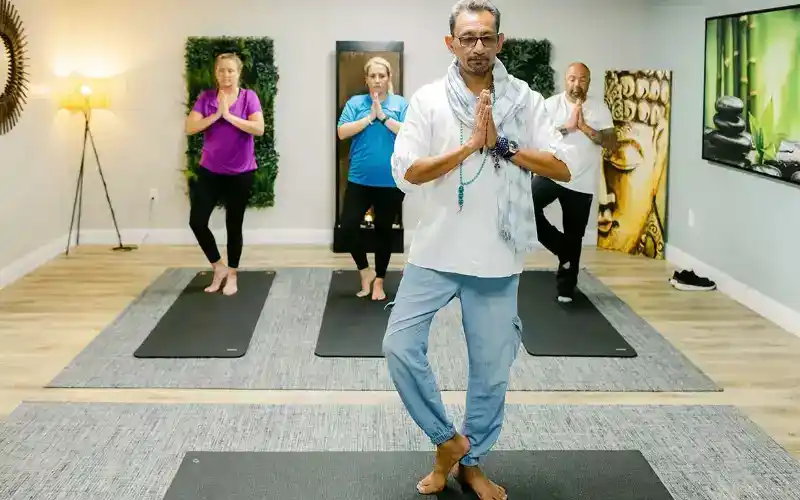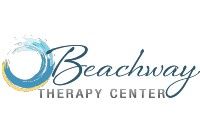





Founded
Occupancy
Accreditation
Who We Treat
Specializations
Levels of Care
About Beachway Therapy Center
Set in a luxurious home, Beachway Therapy Center offers a holistic treatment approach and a variety of therapies for addiction and mental health.
Accepted Insurances
Treatment
Levels of Care
Detox
Detox fully and safely removes toxic substances from the body, allowing the next steps in treatment to begin with a clean slate.
Outpatient
During outpatient rehab, patients attend a structured treatment program while continuing to live at home.
Residential
In a residential rehab program, patients live onsite, with access to daily treatment and 24-hour care. An average stay is 30-90 days.
Intensive Outpatient Program
In an IOP, patients live at home or a sober living, but attend treatment typically 9-15 hours a week. Most programs include talk therapy, support groups, and other methods.
Licensed Primary Mental Health
Some primary care providers offer mental health diagnosis and treatment. This can prevent patients from developing more serious conditions.
Methods
Evidence-Based
A combination of scientifically rooted therapies and treatments make up evidence-based care, defined by their measured and proven results.
Holistic
A non-medicinal, wellness-focused approach that aims to align the mind, body, and spirit for deep and lasting healing.
1-on-1 Counseling
Patient and therapist meet 1-on-1 to work through difficult emotions and behavioral challenges in a personal, private setting.
Rational Emotive Behavior Therapy
A type of cognitive therapy that identifies negative self-defeating thoughts and behaviors, rewriting beliefs to be positive, empowering, and present.
Art Therapy
Visual art invites patients to examine the emotions within their work, focusing on the process of creativity and its gentle therapeutic power.
DBT
This stage-based therapy helps patients address their realities and behaviors while inspiring healthy change, primarily in regulating emotions.
Equine Therapy
Guided interactions with trained horses, their handler, and a therapist can help patients improve their self-esteem, trust, empathy, and social skills.
Eye Movement Therapy (EMDR)
Lateral, guided eye movements help reduce the emotional reactions of retelling and reprocessing trauma, allowing intense feelings to dissipate.
Massage Therapy
Massage therapy relieves physical and emotional tension, reduces pain, promotes relaxation, and improves emotion regulation.
Motivational Interviewing and Enhancement Therapy (MET)
This approach is based on idea that motivation to change comes from within. Providers use a conversational framework that may help you commit to recovery.
Nutrition Counseling
Nutritious food helps patients heal from within, setting them up for mental and bodily wellness as they learn about healthy eating.
Psychodrama Therapy
Patients act out real or imagined scenarios under a therapist's guidance. These exercises foster creative thought, sponteneity, and problem-solving skills.
Group Therapy
Two or more people meet with a therapist together. Patients get valuable peer support, strengthen interpersonal skills, and improve self-awareness.
Family Therapy
Family therapy addresses group dynamics within a family system, with a focus on improving communication and interrupting unhealthy relationship patterns.
Music Therapy
Singing, performing, and even listening to music can be therapeutic. Music therapy sessions are facilitated by certified counselors.
Recreation Therapy
In recreation therapy, recovery can be joyful. Patients practice social skills and work through emotional triggers by engaging in fun activities.
Conditions We Treat
Alcohol
Dependence on alcohol for coping or excessive drinking indicates a disorder that can have serious health and social implications.
Anxiety
Anxiety disorders involve excessive worry and physical symptoms such as tension and elevated blood pressure, often interfering with daily life.
Benzodiazepines
Used for treating anxiety and sleep problems, benzodiazepines can be highly addictive, leading to mood swings and impaired judgement when abused.
Bipolar
Bipolar disorder features intense mood swings from highs (mania) to lows (depression), impacting one's ability to function normally.
Co-Occurring Disorders
When someone has both a mental health disorder and substance abuse issue, it is known as a dual diagnosis or co-occurring disorder.
Cocaine
Cocaine is a powerful stimulant that creates euphoria but can lead to severe health issues like heart problems and psychosis with prolonged use.
Drug Addiction
Substance addiction involves compulsive drug use despite adverse consequences, negatively affecting health, relationships, and daily life.
Heroin
Heroin, an illicit opioid, is highly addictive and can cause severe health issues such as heart problems, insomnia, and collapsed veins.
Methamphetamine
Methamphetamine increases energy and alertness but can cause severe mental and physical health issues, including paranoia and agitation, with long-term use.
Opioids
Opioids, which include prescription painkillers and heroin, can lead to addiction due to their pain-relieving and euphoric effects.
Prescription Drugs
Misuse of prescribed medications, driven by cravings or overuse, can lead to addiction, necessitating professional intervention.
Post Traumatic Stress Disorder
PTSD arises from traumatic events, causing symptoms like flashbacks, anxiety, and intrusive thoughts that can persist long after the event.
Synthetic Drugs
Lab-made drugs, unlike natural ones, include stimulants and synthetic cannabinoids, which can have unpredictable and dangerous effects.
Trauma
Traumatic experiences can result in long-lasting mental health challenges, often referred to collectively as trauma, requiring specialized care.
Depression
Depression ranges from mild to severe, causing feelings of fatigue, numbness, and disinterest in daily activities, impacting overall well-being.
Staff

Wendy Happ
Counselor, MS, LMHC

